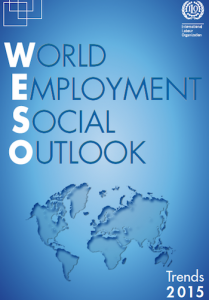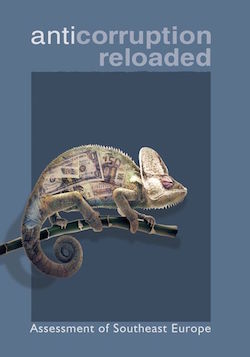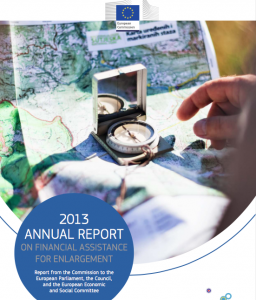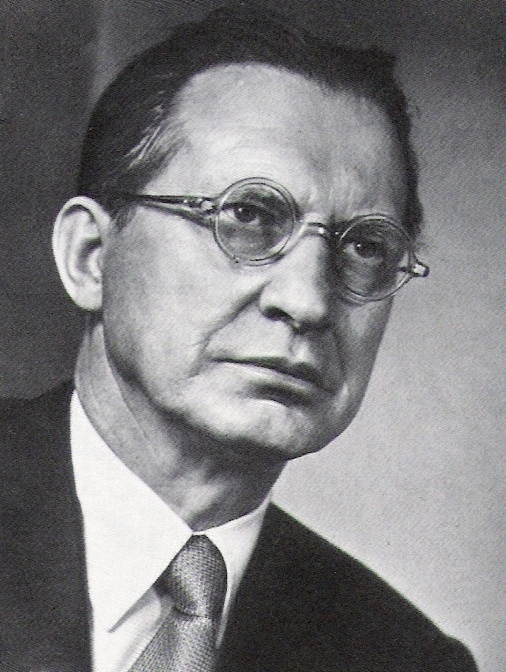Në zbatim të Ligjit Nr. 9936, datë 26.06.2008 “Për menaxhimin e sistemit buxhetor në Republiken e Shqiperisë”, Ligjit Nr.185/2013, datë 28.12.2013, “Për buxhetin e vitit 2014”, i ndryshuar, Udhëzimit Nr. 2, datë 06.02.2012 “Për proçedurat standarde të zbatimit të Buxhetit”, Udhëzimit Nr. 3, datë 17.01.2014 “Për zbatimin e buxhetit të vitit 2014”, po paraqesim informacion mbi efektivitetin e përdorimit të fondeve buxhetore dhe performancën e produkteve të realizuara për vitin 2014, për sistemin e MZHETS-së.
Në përdorimin e fondeve buxhetore jemi mbështetur në parimet e menaxhimit dhe funksionimit të sistemit buxhetor. Shpërndarja e burimeve financiare është bërë në përputhje me politikat ekonomike dhe prioritetet e MZHETS-së, duke pasur si synim një përdorim sa më efiçent të këtyre burimeve, përgjegjësi të qarta për menaxhimin e shpenzimeve për çdo produkt, në funksion të realizimit të objektivave dhe aktiviteteve të përcaktuara për vitin 2014.
IMF Country Report No. 15/48 Full Text
Second and third reviews under the Extended Fund Facility and Request for Waiver for the Nonobservance of Performance Criterion, Waiver of Applicability of Performance Criteria, and Rephasing of Future Disbursements, Shkurt 2015
In the context of the second and third reviews under the Extended Fund Facility and Request for Waiver for the Nonobservance of Performance Criterion, Waiver of Applicability of Performance Criteria, and Rephasing of Future Disbursements, the following documents have been released and are included in this package:
- The Staff Report prepared by a staff team of the IMF for the Executive Board’s consideration on February 20, 2015, following discussions that ended on November 25, 2014, with the officials of Albania on economic developments and policies underpinning the IMF arrangement under the Extended Fund Facility. Based on information available at the time of these discussions, the staff report was completed on January 26, 2015.
- A Staff Statement of February 20, 2015 updating information on recent developments.
- A Press Release including a statement by the Chair of the Executive Board.
- A Statement by the Executive Director for Albania.
The documents listed below have been or will be separately released.
Memorandum of Economic and Financial Policies, and Technical Memorandum of Understanding
The following item is a Letter of Intent of the government of Albania, which describes the policies that Albania intends to implement in the context of its request for financial support from the IMF. The document, which is the property of Albania, is being made available on the IMF website by agreement with the member as a service to users of the IMF website.
World employment and social outlook
 Trends 2015
Trends 2015
The world economy continues to expand at rates well below the trends that preceded the onset of the global crisis in 2008 and is unable to close the significant employment and social gaps that have emerged. The challenge of bringing unemployment and underemployment back to pre-crisis levels now appears as daunting a task as ever, with considerable societal and economic risks associated with this situation.
Dokumenti i Strategjisë së Zhvillimit të Arësimit Parauniversitar 2014-2020 (Draft)
Strategjia e Zhvillimit të Arsimit Parauniversitar 2014-2020 (në vijim, SZhAPU)(1) është një nga përbërësit e Planit Strategjik të Arsimit 2014-2020. Ajo ndjek Strategjinë Kombëtare të APU-së 2009-2013(2) dhe i shërben përsosjes së sistemit arsimor që vlerësohet një nga promotorët e zhvillimit të vendit dhe të përpjekjeve tona integruese. Dokumenti i SZhAPU-së përcakton piketat e realizimit të ndryshimeve në APU. Ai parashtron përparësitë arsimore kombëtare për periudhën në fjalë dhe përbën, kështu, një platformë gjithëpërfshirëse, brenda së cilës të mund të kontribuojnë aktorët institucionalë dhe grupet e interesuara. Dokumenti është propozim për transformimin, për reformimin dhe për zhvillimin e arsimit tonë, sipas një modeli të frytshëm planifikimi, menaxhimi dhe vlerësimi. Ai merr parasysh parimet dhe praktikat më të mira, trajton gjendjen e SAPU-së dhe propozon ndërhyrjet për secilën prej përparësive të vlerësuara si më të rëndësishme, duke shmangur, njëherazi, përshkrimet e panevojshme.
Anti-Corruption Reloaded: Assessment of Southeast Europe
Southeast European Leadership for Development and Integrity, 2014
 Corruption in Southeast Europe has been in the news, in the focus of public debate, and on the policy agenda of national and international institutions so often and for so long that its scrutiny hardly needs to be justified. It is precisely because it has proven to be such an intractable issue that innovative approaches to its understanding – and hence its reduction – are warranted. The EU accession prospects for the countries in the region – though distant – provide an enabling framework for action but it is local stakeholders, and in particular civil society who can bring about sustained progress in anti-corruption. The Southeast Europe Leadership for Development and Integrity (SELDI) has made the in-depth diagnosing and understanding of corruption and governance gaps in the region one of its main priorities, as a requisite condition for its advocacy of knowledge-driven anticorruption policies. This SELDI report fits in the development and implementation framework of the emerging regional anticorruption policy and infrastructure as exemplified by the SEE2020 Strategy’s Governance Pillar run by the Regional Anti-Corruption Initiative.
Corruption in Southeast Europe has been in the news, in the focus of public debate, and on the policy agenda of national and international institutions so often and for so long that its scrutiny hardly needs to be justified. It is precisely because it has proven to be such an intractable issue that innovative approaches to its understanding – and hence its reduction – are warranted. The EU accession prospects for the countries in the region – though distant – provide an enabling framework for action but it is local stakeholders, and in particular civil society who can bring about sustained progress in anti-corruption. The Southeast Europe Leadership for Development and Integrity (SELDI) has made the in-depth diagnosing and understanding of corruption and governance gaps in the region one of its main priorities, as a requisite condition for its advocacy of knowledge-driven anticorruption policies. This SELDI report fits in the development and implementation framework of the emerging regional anticorruption policy and infrastructure as exemplified by the SEE2020 Strategy’s Governance Pillar run by the Regional Anti-Corruption Initiative.
Despite some important achievements – mostly with respect to the stabilisation of democratic institutions, the adoption of laws in key anticorruption areas, a reduction in petty bribery and growing public intolerance of corruption – anticorruption and good governance reforms are not consolidated, corruption among elected politicians and judges seems to be increasing and the enforcement of anticorruption legislation is haphazard. Anticorruption policies and institutions in the region will benefit immensely from the adoption of regular and accurate victimisation-survey based tool for measuring corruption and the rate of progress in good governance, similar to the special Eurobarometer on anticorruption, UNODC’s SEE monitoring of corruption and organised crime, and the Corruption Monitoring System employed by this report.
National Economic Reform Programme, 2015 – 2017, Part I
The Albanian government has submitted to the European Commission its medium term Economic and Fiscal Program during the past eight years, in fulfillment of the requirements for pre-accession countries. Last year the country obtained candidacy status for EU membership. This entailed new requirements for reporting based on EU standards. In this context, Albania is required to annually submit to the European Commission the National Economic Reform Program (NERP).
NERP 2015-2017 presents the main priorities, policies and reforms of the Albanian government and the Bank of Albania on economic aspects. It is based on and in accordance with Law no. 160/2014 “For the Budget Year 2015” and with the Macroeconomic and Fiscal Framework 2016- 20181. The program is also fully in line with the second National Strategy for Development and Integration 2014 – 2020 which is now close to finalization. This document was prepared by an inter-institutional working group with representatives and experts from relevant institutions of the Albanian government and Bank of Albania. The program was approved by the Council of Ministers on 28 of January 2015
Official Report COM(2014) 610 final
Print Version
 Report from the Commission to the European Parliament, the Council, and the European Economic and Social Committee
Report from the Commission to the European Parliament, the Council, and the European Economic and Social Committee
(IPA, PHARE, CARDS, Turkey Pre-accession Instrument, Transition Facility), 2014
Raporti i BB, janar 2015
Teksti i plotë i Raportit
(more…)




 Libraria Shteti Web
Libraria Shteti Web









